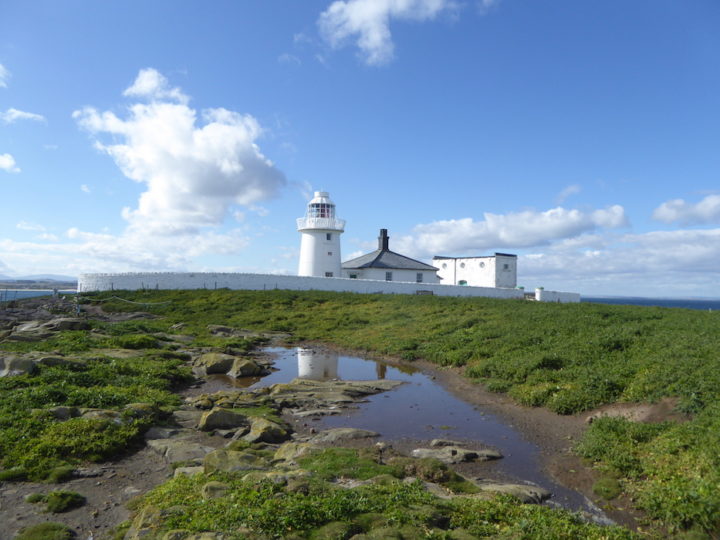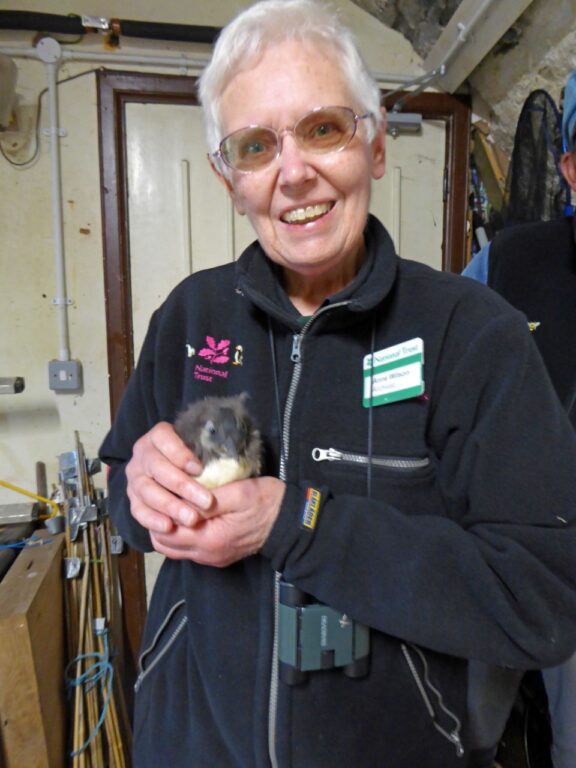For NHSN Life Member, Anne Wilson, lockdown provided an opportunity to appreciate the interconnectedness of nature, and ponder the pressing issues facing the natural world.
While I have always been fascinated by the natural world, Lockdown has given me the time to pay attention to details. It is so amazing how everything fits together, it is so important to consider the natural world as a whole. Looking at only one part of it, i.e. ornithology leaves so much out. How the insects are there at the correct time to be fed to the young, and how important insects are for us, not only do they add to my enjoyment of birds, but they are vital for pollination, especially for food crops.
This links into to a further topic, how we depend on the natural world and how our actions are putting so much at risk. I sometimes despair. The pollution that not only impacts quality of the water in the sea and rivers, but can have such a devastating effect on marine life. Not only plastic waste but ghost fishing gear. It is heartbreaking to see for oneself and photos of birds, mammals and other creatures caught up in them. A particular hate of mine is balloons and sky lanterns, so unnecessary, and as we have seen over the last months clapping is a much better way of appreciating people.
I am fortunate that I am the volunteer archivist for the Farne Islands. And visit most weeks. I have missed these so much as well as and working with the rangers on Inner Farne to show the visitors the wonder of the islands, the depth of history they have and the amazing birdlife. However, the lockdown has given me the time to catalogue all my numerous paper files and find information which I did not realise I had; all of which has been added to my accounts of history and the buildings. I have also been able to make sure all my spreadsheets are up to date. The records of scarce and rare birds, dates of egg-laying, hatching, fledging and of common migrants. So there has been some compensation.

I have also missed working in the Natural History Society of Northumbria especially on the diaries of Edward Miller, a watcher on the Farne Islands 1911-1914, and seeing everyone there.
Hopefully, before Christmas, it may be possible to return to Edward, and all being well by August have a sail round of the Farnes. To see them and some of the breeding birds will be so, so welcome.
About the author
“I live in Gosforth on the wildlife corridor from Gosforth Park and near the Ouseburn. I am very fortunate as I can see Roe Deer on my daily walks, Kingfishers and Grey Wagtails on the Ouseburn and Sedge Warblers and Reed Buntings in the reed beds.
Those who know me know that my passion is the Farne Islands. I have been a volunteer since 2005, and am now the volunteer archivist. I usually try to go every week during the seven months they are open to the public, and usually, work with visitors when I am there. I have been out in every month of the year and love seeing how they alter each month. The photo shows me with a puffling that the rangers had found confused and underweight on the Inner Farne. They fed it until it was able to be released onto the sea.

I have been a member of the Natural History Society of Northumbria since 1980, and until 1999 just attended the lectures in the winter, a number of courses, and went on many field trips, especially with David Noble-Rollin, and Angus Lunn. In 1999 I was asked if I would help in the office when David was ill. Since then I have been a regular volunteer. I thoroughly enjoy this, and it has put me in a unique position with regard to the Farnes as I have both access to the National Trust archives and the Natural History Society of Northumbria archived. At present, I am transposing the diaries of Edward Miller, a watcher on the Farnes from 1911-1914.
The archives have been invaluable in my work about the Farne Islands, and I am conscious of the debt I owe to the Natural History Society of Northumbria; so to show my thanks and commitment I became a Life Member in 2003.”